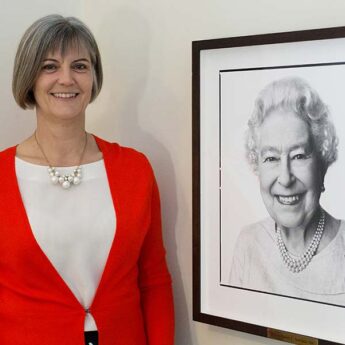The high number of cases of international parental child abduction has recently started to come under the spotlight in Japan. These are cases where one parent has wrongfully removed the child to, or retained them in, another country, denying both the child and the other parent the right to maintain contact with each other.
The 1980 Hague Convention on the Civil Aspects of International Child Abduction aims to protect children from the harmful effects of wrongful removal or retention across international boundaries, and to ensure their prompt return when this happens. Eighty-two countries are now signatories to the convention; within the G8 group of nations only Japan and Russia remain outside. The UK and a number of other countries are pressing for Japan to sign the convention. It’s a big issue for us — the UK alone has had 38 cases involving a Japanese and British parent since 2003. We’re encouraged that Japan has recently begun to take notice, with Prime Minister Yukio Hatoyama noting the seriousness of the problem, but we want to see further progress. If Japan were to sign the convention, we would have a mechanism in place to ensure any children wrongfully removed in the future from Britain to Japan could be returned. But we also want Japan to implement measures to deal with existing cases.
On 18 March the Embassies of Australia, Canada, France, Italy, New Zealand, Spain, the UK and the US organised a seminar bringing together experts from our countries to explain to Japanese officials how the convention works in practice. Prof William Duncan, deputy secretary-general of the Hague Conference on Private International Law, spoke publicly after the seminar. He was keen to clear up some common misconceptions in Japan.
Above all, he stressed that the convention is not about custody, but about preventing harmful and wrongful removal. The convention starts from the principle that the courts in the habitual place of residence — the UK, Japan or elsewhere — are best placed to make decisions on custody, in the best interests of the child. As such, signing up to the convention may not require a change of domestic or family law. But, over and above the legal considerations, he also had a simpler message — that abduction and separation from parents can have a harmful and long-lasting effect on children. Acting in the best interests of the child — that has to remain our focus.
Passport need renewing?
British passport application procedures are changing. From 19 April 2010, passport applications for British Nationals will no longer be accepted or processed in Japan. You will be required to send your application directly to a Regional Passport Processing Centre in Hong Kong. For more details, please visit our website at ukinjapan.fco.gov.uk.
Vote in the UK election
A UK general election will be held on 6 May. At the time of going to press, deadlines for overseas voters were not available but you may still have time to register.
Every British citizen who has been registered to vote in the UK in the last 15 years is eligible to vote in UK parliamentary (general) elections and European parliamentary elections in the UK.
If you were too young to register when you left the UK, you can still register as an overseas voter if your parent or guardian was registered to vote in the UK.
Once you’re registered:
If you’re in the UK on Election Day, you can vote at a polling station
If you’re abroad you can apply to vote by post, although there may be a rather short time in which to return your ballot paper to the UK
If you’re abroad you can apply to vote by proxy
For details:
www.aboutmyvote.co.uk





